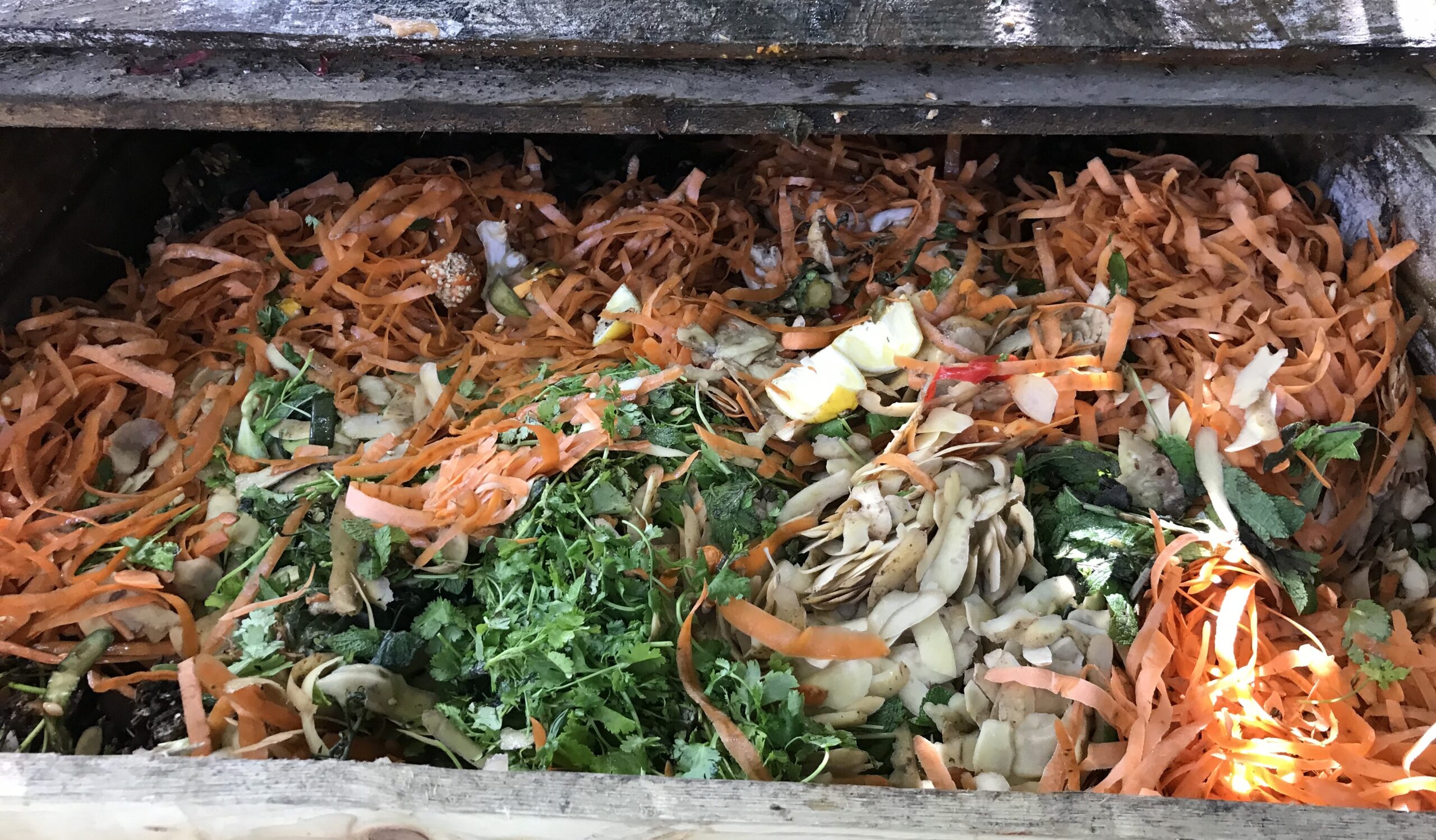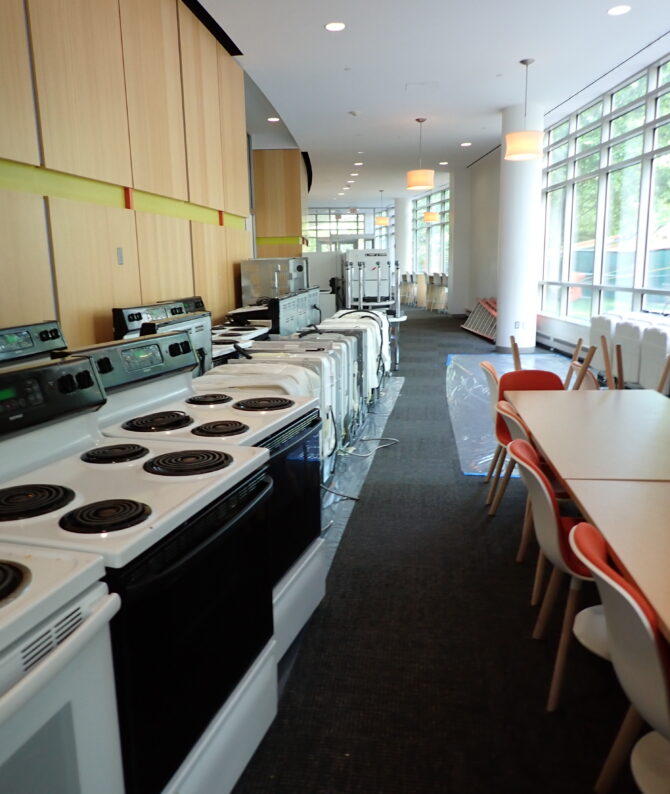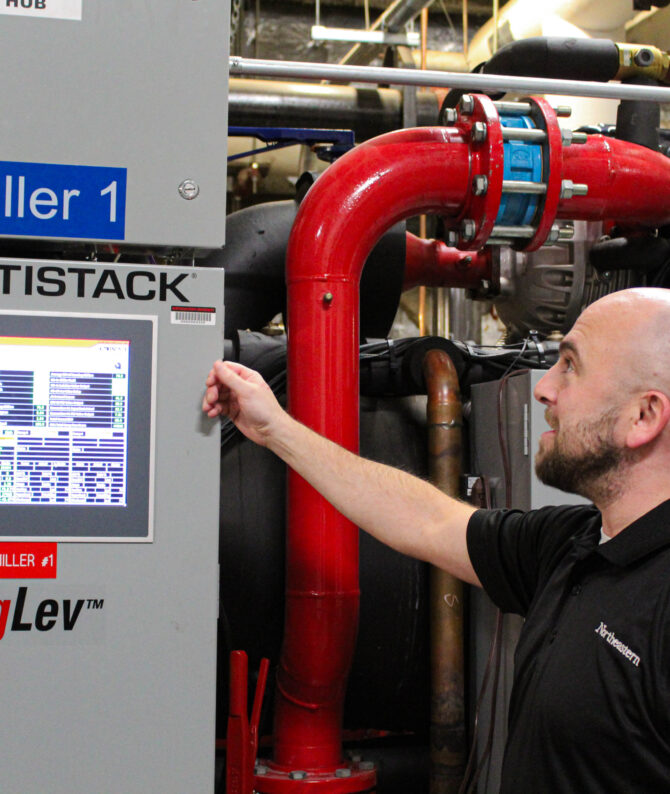Compost Program Expansion: Dorm Edition
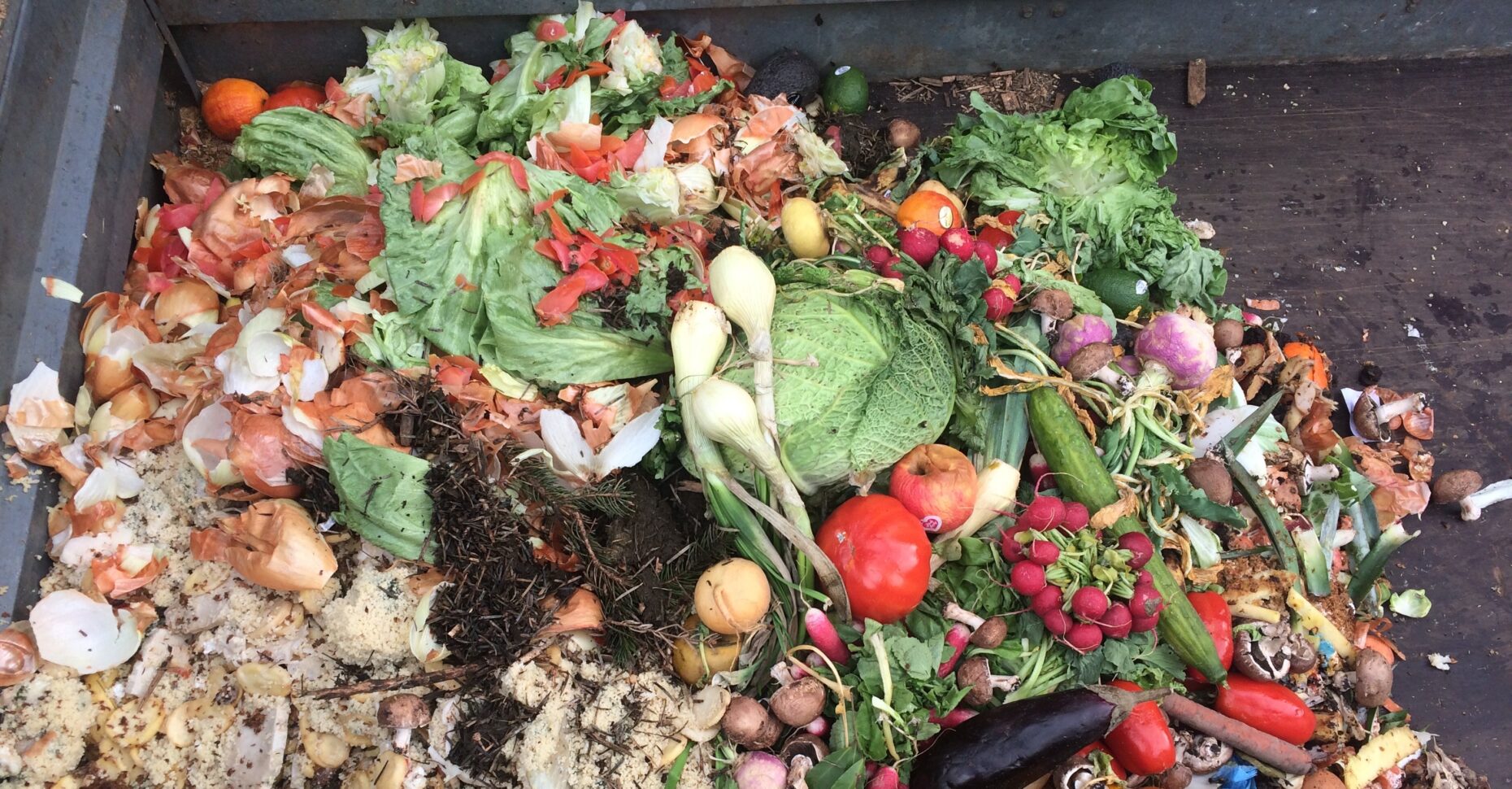
By Julia Laquerre with the Climate Justice and Sustainability Hub
A new wave of sustainability is hitting the dormitories just in time for holiday festivities. Select dormitories aim to make celebrations not only memorable but environmentally conscious.
Northeastern University already composts in every eatery on the Boston campus, and now, a handful of dormitories. The movement to residential halls signifies Northeastern’s broader commitment to reducing the university’s environmental footprint. With the Boston campus producing more than half a ton of food waste per week, this composting initiative helps divert waste from landfills, mitigating the release of methane into the atmosphere.
Sue Higgins, the Director of Materials and Recycling, within the Planning, Real Estate, and Facilities division believes “it’s a really good way to manage food waste; it turns all the nutrients that were in that food and creates a product that can then go full circle and be reapplied to the soil and help grow fruits and vegetables.”
April of 2022 was the first month of composting in a dorm; it was a one-month trial period in the freshman dormitory Speare Hall, and it was a huge success. Students were thrilled to have the option to compost and the convenience of disposing their food waste in the dormitory’s trash room made it easy for students to get on board.
Higgins was eager to expand the successful program, so she reached out to Residential Life to propose another more substantial pilot. East Village dormitory was chosen for a permanent composting program. The location was ideal because of its accessible trash room and mixed style rooms with some being apartments and others being traditional rooms. They could assess the success rate in a dormitory with kitchens, unlike Speare Hall which only has traditional rooms.
To prevent contamination, residents were given the option to participate, ensuring only those genuinely committed to reducing their contribution to food waste would join the program. The results were impressive; students were consistently embracing composting with minimal contamination. With this success in mind, the initiative was expanded to include more apartment-style dormitories. The hope was to tap into the additional food waste generated by students who actively cook, further contributing to the sustainability goals of the program, as highlighted by Higgins.
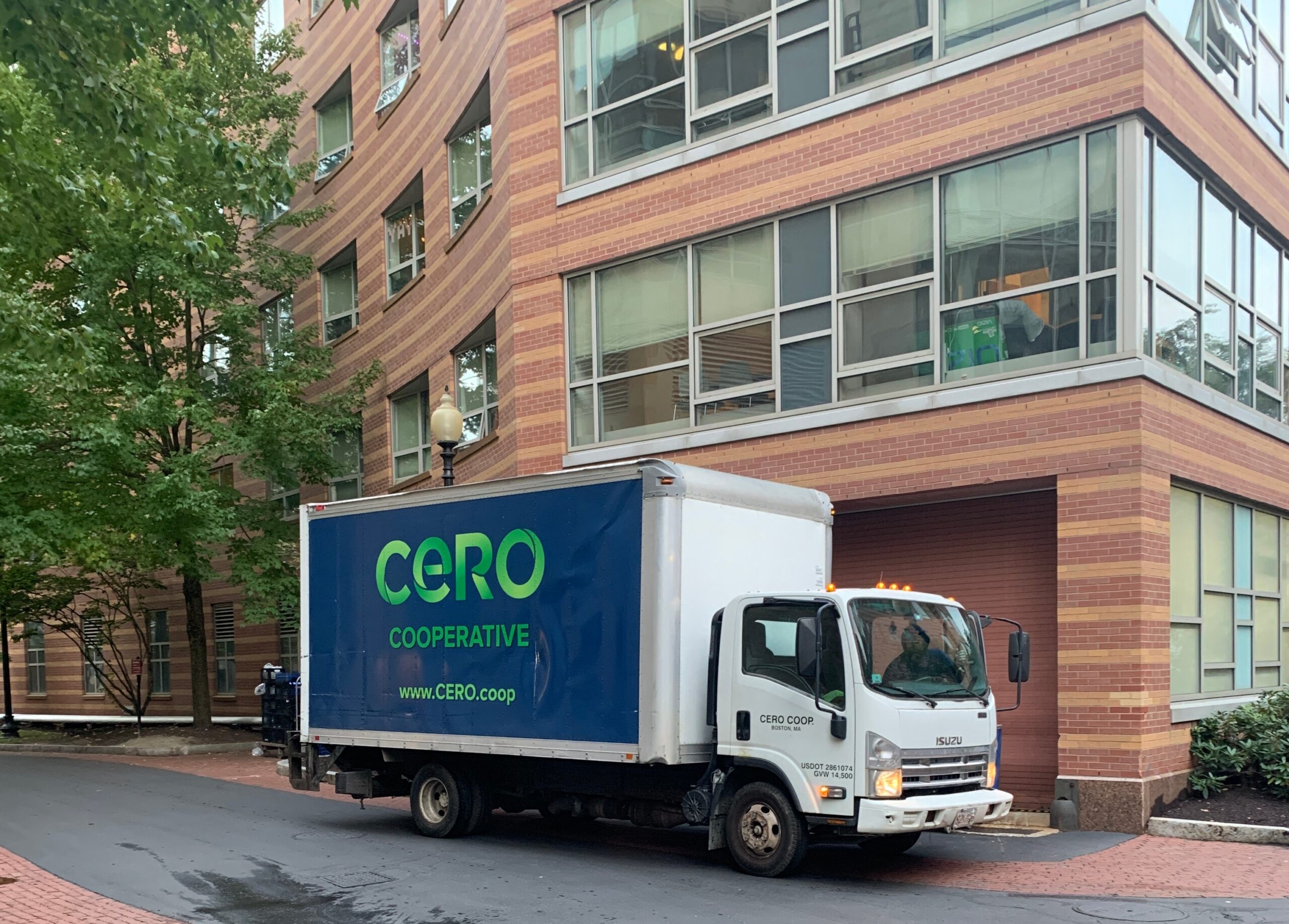
CERO Truck outside West Villages |
This September, three more dormitories were chosen for the project: West Village B, C and E. Now with four dormitories composting, Higgins was going to need some help from Residential Life, “it was a lot of collaboration and coordination to set it up for success, to make sure that we were anticipating what could be a problem and make sure we were addressing it in advance.”
| Residential Director of West Villages C, F and G, Jeff Wetherford, stepped up and helped promote the program to his residents based on, “the simplicity of it, how easy it is to do something that is so beneficial. I think a lot of the students didn’t realize how many things they could compost and how they could make a difference in the everyday things that they do. And I think it’s important to equip students with tools that they can take on after their experience here at Northeastern.”
They needed to educate students on composting best practices and provide them with the necessary materials. The team had to find an alternative to single-use plastics for storing food waste. They had the idea of repurposing large plastic yogurt containers from the dining hall, a perfect solution to reduce landfill waste. Participating students received a cleaned yogurt bucket and BPI certified compostable bags. |
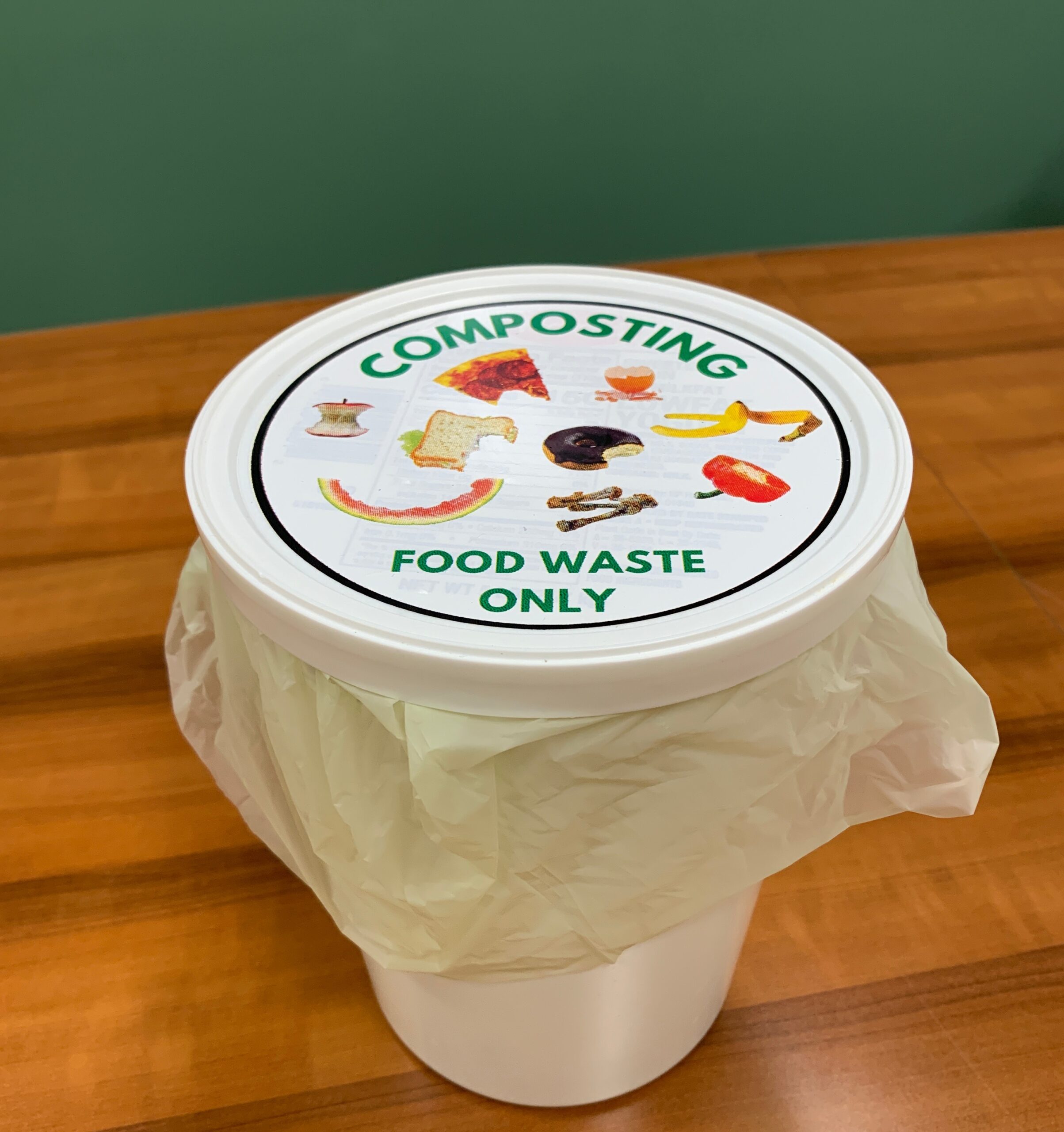
Compost bucket |
Participation was a critical aspect in recruiting students to join the program, “it’s hard to get past a 30 or 40% participation rate because some people are just grossed out by it,” said Higgins. But what really matters is “the students who are choosing to do it want to do it.”
Low contamination levels are attributed to the dedication of these students, who educated themselves on composting guidelines. However, Higgins highlights a common source of contamination, “the one item of contamination that I see in dorm composting are plastic produce grocery store bags.” Be sure to only use the provided BPI certified bags located at every disposal station.
Some students may not be aware that CERO Cooperative, the local composting company partnered with Northeastern, can process all food waste. Higgons explained what she hopes to be the future of composting at Northeastern’s Boston campus is to “produce less food waste but capture everything that we produce. To capture everything, we have to make composting more mainstream, it has to be readily available to everybody and that means in every dorm.”
|
|
So, as you prepare for Friendsgiving and other dorm events, start by preparing the meal for the number of people coming and composting inedible food scraps like turkey bones or potato peels. Instead of discarding any leftovers, encourage friends to take them home or freeze them to enjoy later. Small actions collectively make a big impact on the future of waste reduction.
Written by Julia Laquerre- 12-04-23

